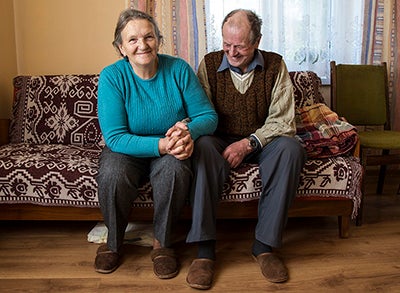
Poland is aging at an unprecedented pace. This irreversible demographic trend is creating challenges that my parents never had to face, and questions that are hard to answer. For example, will I be able to retire 10 years before the statutory retirement age, as my parents did? And will I be able to maintain a decent standard of living? What is the best way to remain financially comfortable for more than 30 years? Real estate is the main form of long-term investment among my peers, but what if the market is flooded with cheap property sales 30 years from now? These are some of the questions that – being in my mid-30s – I have now started thinking about.
The truth of the matter is that the changes in the structural fabric of Poland’s aging society will impact all aspects of the economy, creating new challenges for growth prospects, income distribution, and the sustainability of public finance. As one can imagine, the current economic and social model needs to be adjusted accordingly.
Poland, like many other Central European countries, is on the verge of important socio-economic changes that will impact the lives of generations to come. And, one of the key challenges for the country will be figuring out how best to “share the pie” among the aging population. To this end, the government will need to review the mechanisms by which national income is transferred between generations, which in reality means to an increasing group of pensioners.
Why is old-age income such an issue in Poland? Thanks to reforms initiated in 1999, the pension system has become fiscally sustainable today – and fairer, with benefits better aligned to individual contributions. But, this achievement came at the cost of significant reductions in future pension adequacy and replacement rates. Therefore, the system will be much less redistributive going forward. Poland is one of the EU countries where this reduction will be most significant – seeing replacement rates drop from around 50% today to 20% in 2050. This means that many more pensioners may find themselves at risk of poverty, especially as household saving rates decrease and about 80% of old-age income comes from public transfers. Given the voting power of the growing old-age population, would such a system be socially sustainable and economically feasible?
Finally, is there a “cure-all” solution for sustaining decent living standards of the elderly in Poland? Well, one way of ensuring this is to allow additional transfers from the national income to pensioners. Either income or consumption could be taxed to provide a supplement to public pensions – although it should be pointed out that this may mean imposing an additional burden on future generations and an increasingly scarce working age population.
Another possibility would be to encourage future Polish pensioners – people like me – to start accumulating more saving and assets now, so that the earned income can be used to supplement our public pensions in the future.
As suggested in the afore-mentioned report, those people currently working and aged between 20 and 50 years will have to save an additional 10% or so of their earnings to maintain current replacement rates. For me and many of my friends and peers, this means changing now how we save over the long-term, especially if we want to have a decent share of the pie. This is something that my parents’ generation did not have to face, but we do. Otherwise, at the end of the day, what is the alternative?


Join the Conversation